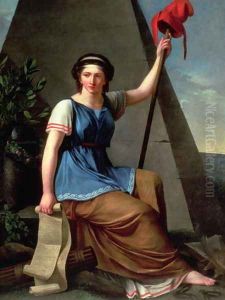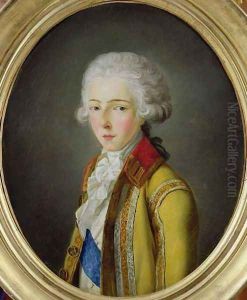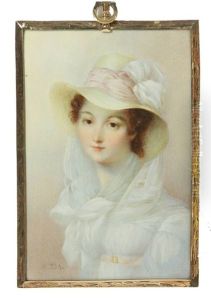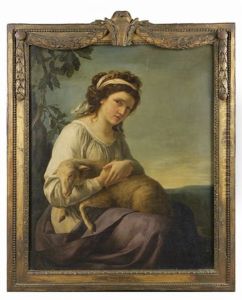Nanine Vallain Paintings
Nanine Vallain was a French artist born in 1767. Not widely known in the grand scope of art history, she was a painter who lived and worked during a period of significant social and political change in France, which included the French Revolution and the Napoleonic Wars. Her life and career were influenced by the turbulent times she lived in, and as a woman artist, she faced the added challenges of operating within a male-dominated art world.
Vallain's artistic education and early career are not well-documented, but it is known that she specialized in miniature paintings, a popular art form at the time, particularly for personal mementos and portraits. Miniature painting required precise brushwork and attention to detail, and Vallain's works would have been valued for their intimacy and craftsmanship.
Despite the lack of extensive records on her life, it is clear that Vallain's career unfolded during a period when the role of women in the arts was beginning to shift. The French Revolution, while causing upheaval and uncertainty, also promoted ideas of equality and meritocracy, which had some impact on the opportunities available to women artists. However, the art institutions and academies remained largely inaccessible to women, limiting their professional opportunities and recognition.
Nanine Vallain's life and art are an example of the many lesser-known artists whose contributions to the cultural fabric of their time remain under-recognized. She died in 1815, at the end of the Napoleonic Wars, having witnessed and artistically contributed to a pivotal era in European history. Her works, presumably cherished by their original owners, now provide a window into the aesthetic and personal tastes of the late 18th and early 19th centuries.



